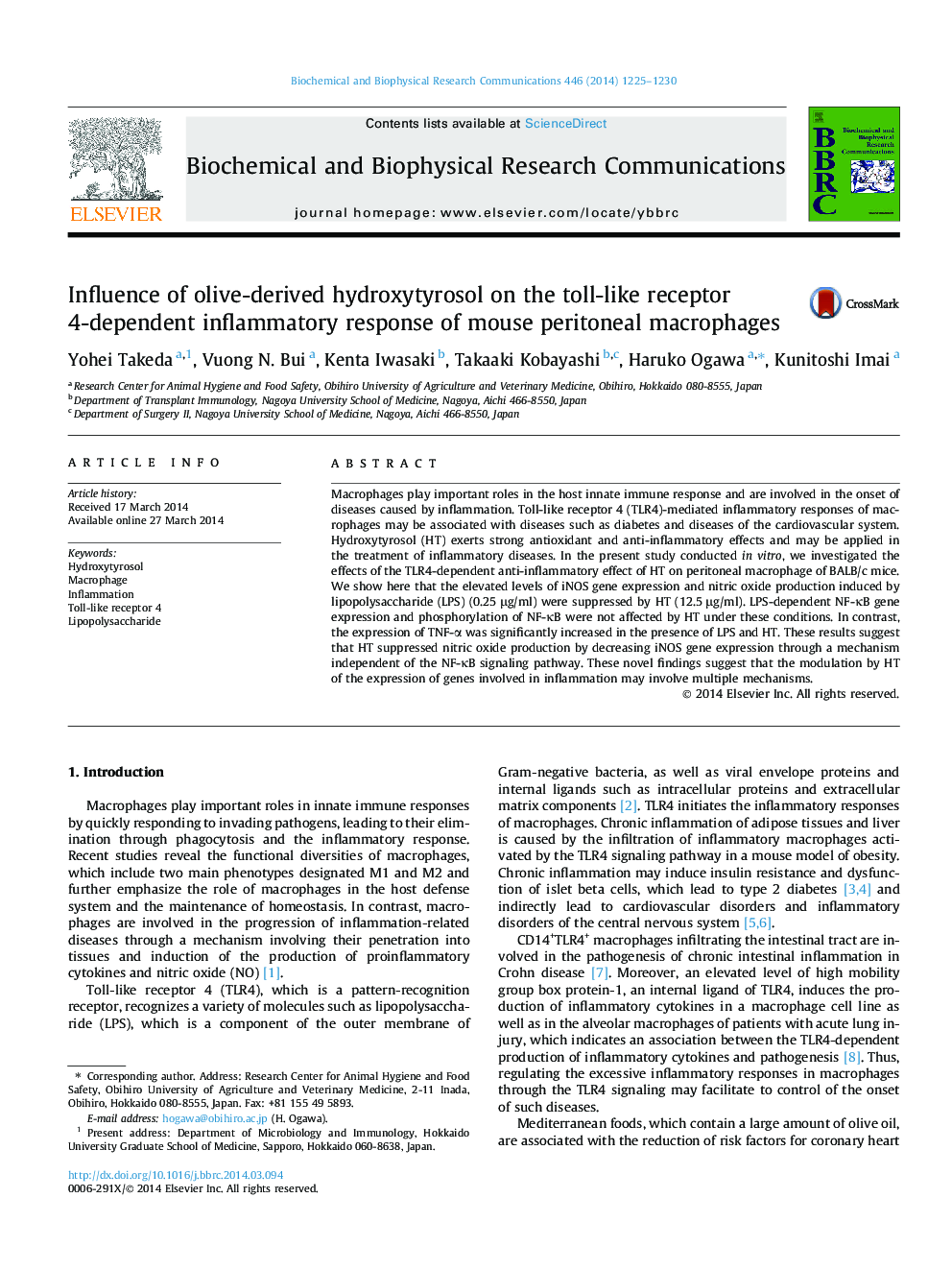| Article ID | Journal | Published Year | Pages | File Type |
|---|---|---|---|---|
| 10755694 | Biochemical and Biophysical Research Communications | 2014 | 6 Pages |
Abstract
Macrophages play important roles in the host innate immune response and are involved in the onset of diseases caused by inflammation. Toll-like receptor 4 (TLR4)-mediated inflammatory responses of macrophages may be associated with diseases such as diabetes and diseases of the cardiovascular system. Hydroxytyrosol (HT) exerts strong antioxidant and anti-inflammatory effects and may be applied in the treatment of inflammatory diseases. In the present study conducted in vitro, we investigated the effects of the TLR4-dependent anti-inflammatory effect of HT on peritoneal macrophage of BALB/c mice. We show here that the elevated levels of iNOS gene expression and nitric oxide production induced by lipopolysaccharide (LPS) (0.25 μg/ml) were suppressed by HT (12.5 μg/ml). LPS-dependent NF-κB gene expression and phosphorylation of NF-κB were not affected by HT under these conditions. In contrast, the expression of TNF-α was significantly increased in the presence of LPS and HT. These results suggest that HT suppressed nitric oxide production by decreasing iNOS gene expression through a mechanism independent of the NF-κB signaling pathway. These novel findings suggest that the modulation by HT of the expression of genes involved in inflammation may involve multiple mechanisms.
Related Topics
Life Sciences
Biochemistry, Genetics and Molecular Biology
Biochemistry
Authors
Yohei Takeda, Vuong N. Bui, Kenta Iwasaki, Takaaki Kobayashi, Haruko Ogawa, Kunitoshi Imai,
